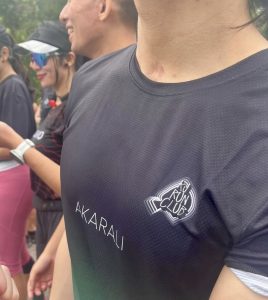
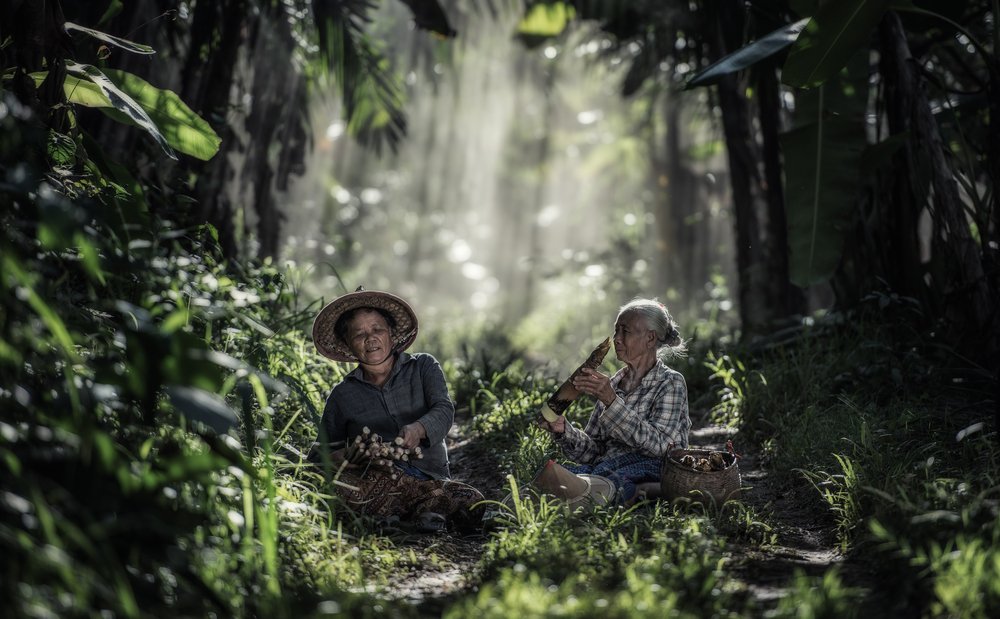
Last Update: 6th June 2024
Nestled deep in rainforests for millions of years, Tongkat Ali (Eurycoma Longifolia) is quintessentially Malaysian; a story that began as early as 1600s.
Tongkat Ali is used by the indigenous people (i.e Orang Asli) who live in the remote rainforests of Malaysia for centuries. This herb is now consumed by more than 500 million people across the globe.
This is the story of Malaysian Tongkat Ali. You will learn facts about Malaysian Tongkat Ali, buying tips and what makes Malaysian Tongkat Ali truly special, reputable and trusted in the US, UK and Australia.
In Malaysia, Tongkat Ali is used as male tonic for energy for centuries.
Professor Kerry Bone, Medical Herbalist (Australia)
Malaysian has a rich history of herbs, natural and traditional remedies that attract the world’s attention, rising to the top as one of the key exporters of Tongkat Ali (Eurycoma Longifolia), or otherwise known as Malaysian Ginseng or LongJack.
Dating back to its first discovery as a medicinal plant by British surgeon Sir William Jack in 1822, Malaysia is known for its preservation efforts, harvesting, research & development and decades of technical innovation to deliver quality Tongkat Ali extract that meets international quality and safety standards.
Following the adoption of Tongkat Ali as one of the reputable herbs by the American Botanical Council, Malaysian Tongkat Ali is now viewed as a better choice for US consumers seeking to buy quality Tongkat Ali (LongJack) supplements in the United States.
Malaysian Tongkat Ali has become popular in the past decade due to the growing scientific research on this interesting medicinal plant.
Mark Blumenthal (CEO & Founder), American Botanical Council
Founder of the American Botanical Council (ABC) Mark Blumenthal estimated that there are at least 175 scientific articles compiled on Tongkat Ali in HerbMedPro, an online portal of research and clinical studies hosted by ABC.
The growing list of clinical trials of Malaysian Tongkat Ali from its early research days with MIT scientists now sparks a global revolution that caught the attention of many health professionals, scientists and researchers including US-based Dr Andrew Huberman, Dr. Rena Malik and even top urologists in Europe Dr. Militello in recent years.
But Malaysia’s reputation goes further back.
According to a book published by researcher Goreja in 2004, Malaysian Tongkat Ali has a wide range of health benefits that crowned this herb as “A Tree That Cures a Hundred Diseases“.
Indeed Malaysia was and still the epicenter of Tongkat Ali’s global revolution due to its rich tradition of jamu – a century-old practice by the Malays that uses herbs and natural plants to treat illnesses and cure diseases.
Here are six facts you need to know about Malaysian Tongkat Ali.
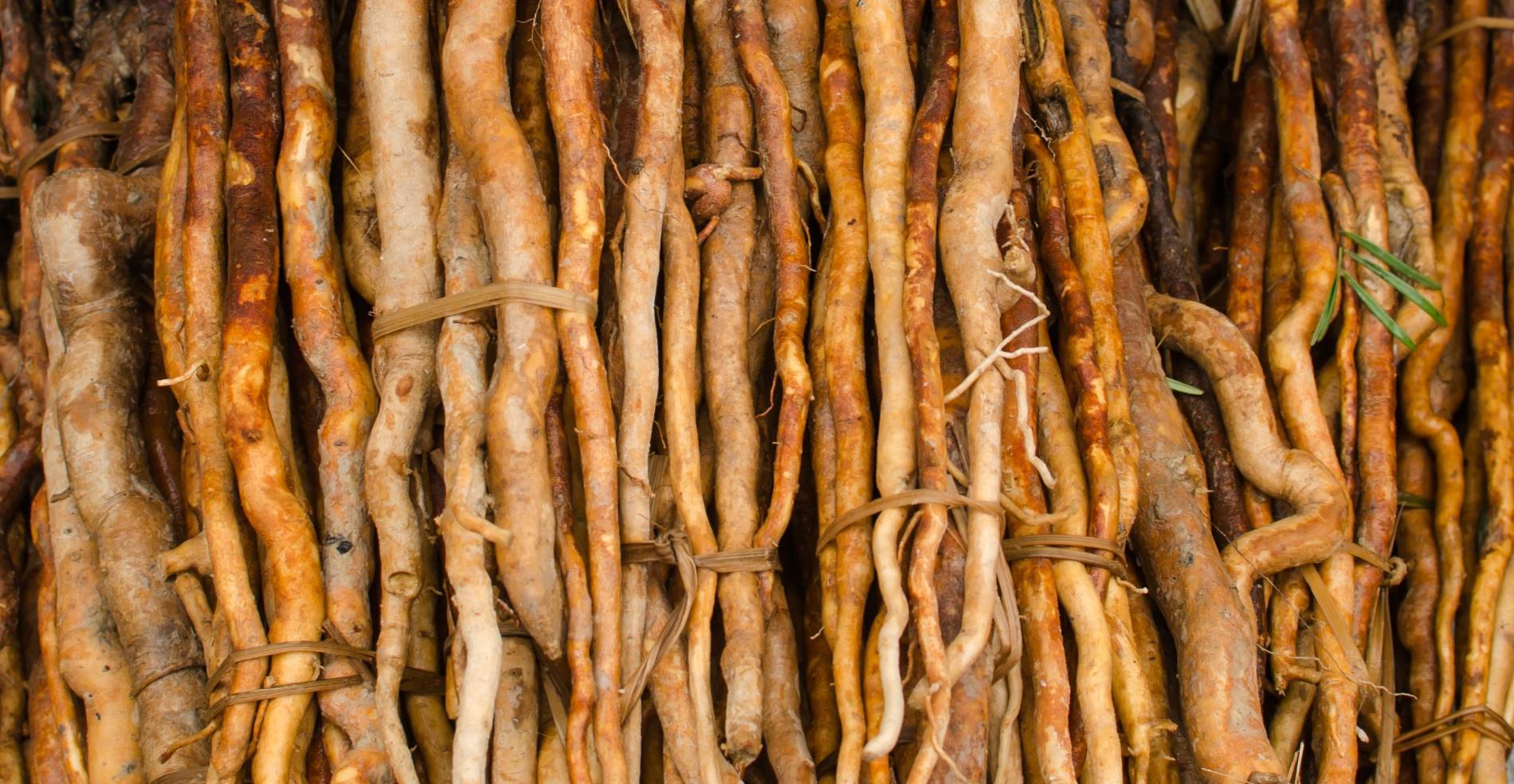
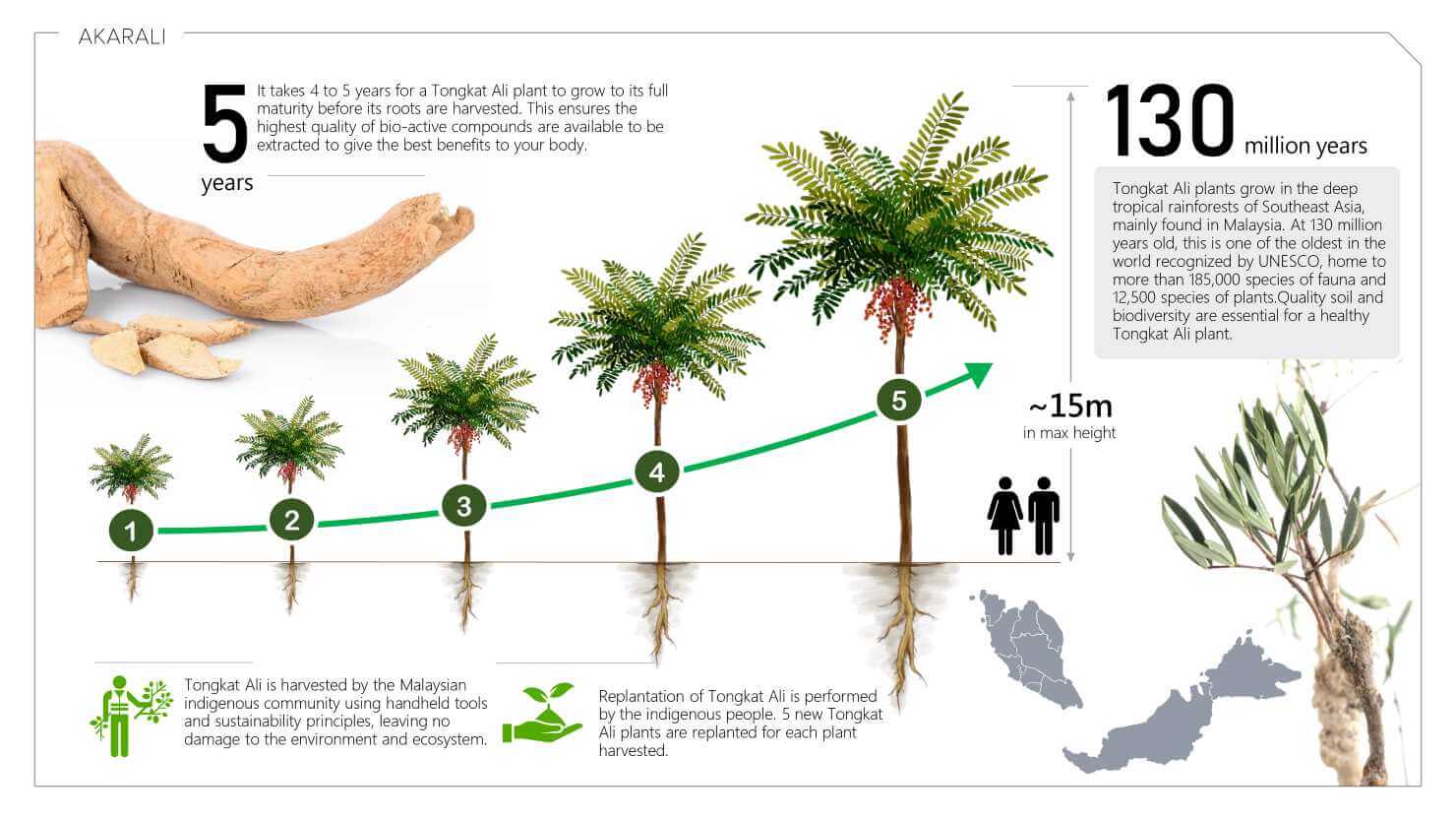
Buying Malaysian Tongkat Ali is akin to buying a piece of history. The journey and mass adoption of Tongkat Ali was driven by the country’s commercialization effort that began in the 1980s. Through its first discovery in the 1800s, here are the key events and milestones that shaped Malaysian Tongkat Ali to where it stands today.
Tongkat Ali was first discovered in Malaysia by Scottish Botanist / Surgeon William Jack. The original description of the Tongkat Ali species known as Eurycoma Longifolia was published in the Malayan Miscellanies, Volume 2, in 1822 by William Jack. A Tongkat Ali painting was presented as a gift to British leaders in the 1880s as a symbol of power used by the indigenous in Malaysia during the British Empire.
Tongkat Ali is exported as herbal medicine by the Gujaratis and traders who frequently dominate the Eurasian spice trade. Meanwhile Malaysian Tongkat Ali is mainly consumed in it’s traditional form, i.e by drinking the root extract from hot water boiling method.
Tongkat Ali is sold without regulations by the health authorities and safety standards in Malaysia. Malaysians generally consume Tongkat Ali daily as an energy tonic and for its aphrodisiac properties. No scientific evidence was recorded during this period.
Malaysian Government announced it’s first biotech partnership with the Massachusetts Institute of Technology (MIT) to commercialize Tongkat Ali. The research involves developing new extraction technology and refining other protocols which include chromatography fingerprinting and indexing processes in 2003. This enables the identification of the best bioactive ingredients during the Tongkat Ali extraction process.
The world’s first patented Tongkat Ali extract known as Physta was born as a result of MIT-Malaysia research partnership in 2003 which made Malaysian Tongkat Ali a a popular herb in the US, mainly used as a natural testosterone supplement and a libido booster.
Malaysian Sovereign Wealth Fund, Khazanah, invested more effort to accelerate the commercialization of Tongkat Ali through collaborative research effort. More studies were conducted to validate Tongkat Ali’s health benefits using Physta® hot water root extract technology.
The Department of Standards Malaysia published the world’s first Tongkat Ali standards, known as the Malaysian Standard MS2409. The Malaysian Standard MS2409 prescribes the quality requirements and specifications of freeze-dried water extract derived from the dried roots of Tongkat Ali.
Meanwhile, the National Pharmaceutical Regulatory Agency (NPRA) of Malaysia (under the Ministry of Health) published the official use of Tongkat Ali as Traditional Medicine in the Malaysian Herbal Monograph in 2015.
Malaysia continued to be the industry leader in Tongkat Ali that sparked more than 300 research studies and clinical trials. Malaysia-formulated Physta® Tongkat Ali with its US-patented Tongkat Ali standardized hot water extract technology sets a new quality benchmark, giving birth more than 26 clinical trials conducted on men and women to validate its health benefits.
It was believed that Tongkat Ali was a symbol of power and status for Malaysian men, linked to masculinity and virility.
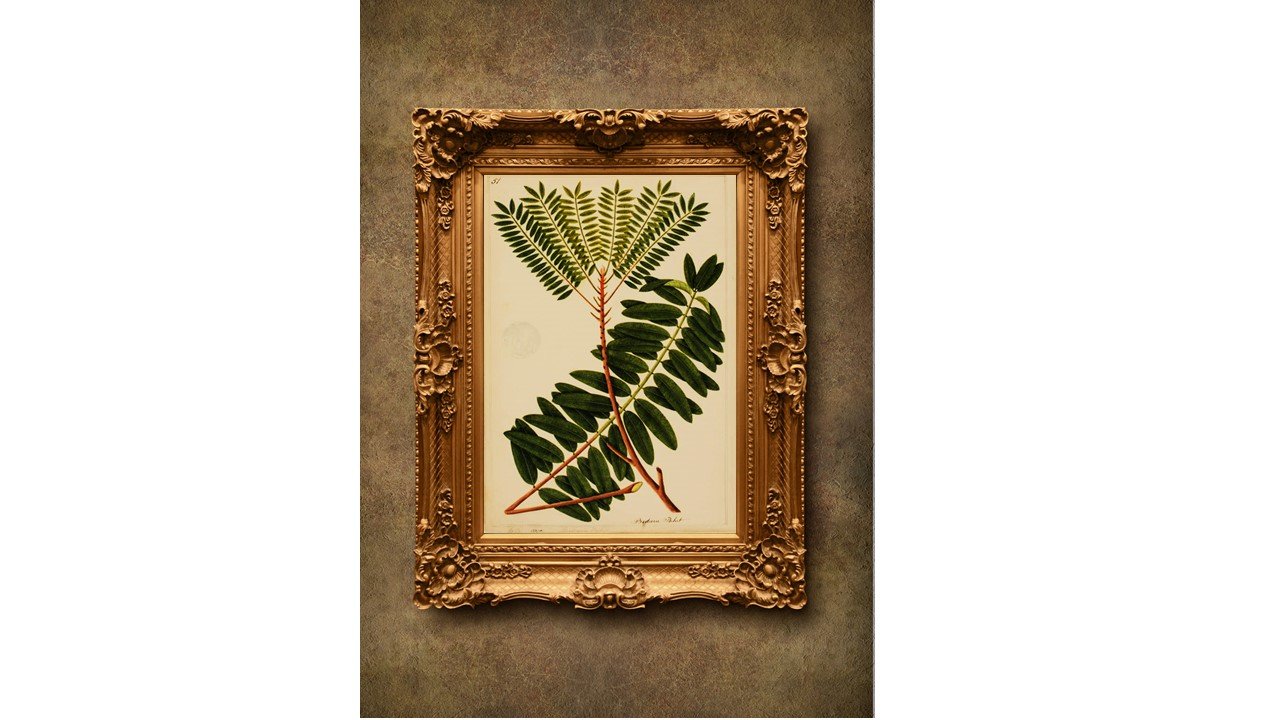
The painting of Tongkat Ali belonging to General William Farquhar was a gift by the Sultans when the British landed their foothold in Malaysia in 1786.
Using the English direct translation, Tongkat Ali means Ali’s walking stick. Sometimes Tongkat Ali is referred to as LongJack, derived from William Jack, the Scottish botanist who discovered Tongkat Ali during his first visit to Malaysia in 1822.
The word “Tongkat Ali” often refers to the plant (Eurycoma Longifolia) which may include other parts of the plant such as the branch, leaves, stem and even roots.
As the root of the Tongkat Ali plant is widely used in commercial applications and research studies, “Tongkat Ali root” is now a term used in the industry and referred to as Akar Ali in the Malay language.
Pronounced as aka-ralee or akarali by local Malaysians, Tongkat Ali root is the best term to describe the herbal plant as the root extract is now widely used in powder form, capsule, gummies and found in other dietary supplements including topical skin applications.
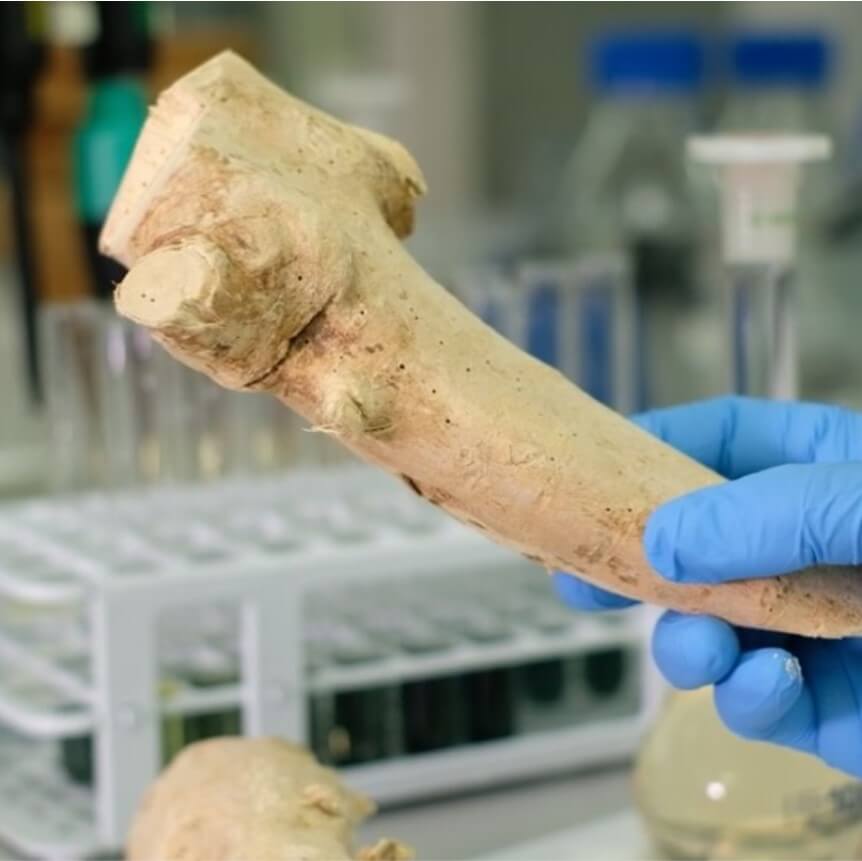
Tongkat Ali root (Akar Ali) refers to Malaysian Ginseng root – used in the form of raw slices, powder extract, capsules or drinks for centuries as a herbal remedy for vitality and other health benefits.
However, language experts and historians believe that the combination of two words, i.e “Tongkat” and “Ali, may contain a hidden history beyond its literal translation.
Here is the definition of what Tongkat Ali could mean taking into account its Arabic roots.
Tongkat:
The word “Tongkat” is a Malay word for a walking stick. In the context of the word “Tongkat Ali”, the word “Tongkat” represents the root of the tree which resembles a walking stick, often viewed as a symbol of virility and power. Walking sticks or “Tongkat” are mainly used by the Malaysian elites, noblemen, royals and British aristocrats in the 1800s.
Ali:
“Ali” literally means elevated, or champion in Arabic. It is believed that the word “Ali” originated from Sayyidina Ali Abi Talib, which is renowned as a paragon of manhood. It is believed that Tongkat Ali was traded by the Gujaratis from Malaysia to India as a novelty herb during the British Empire.
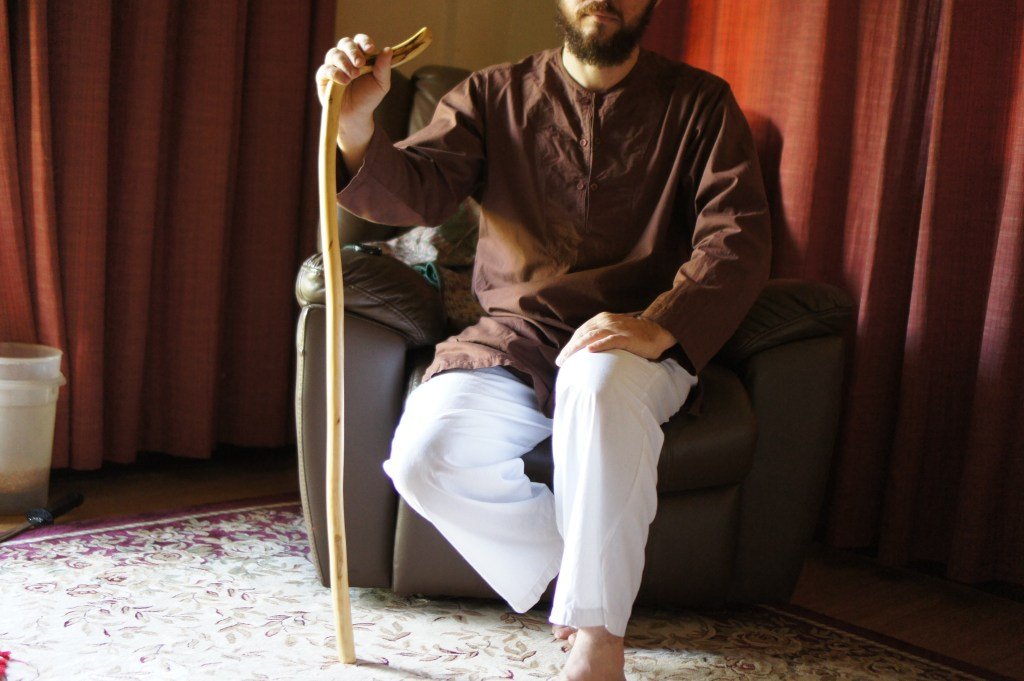
Example of a walking stick made from Tongkat Ali root by a Muslim American living in Malaysia. Credit: Bingregory
There are three types of Tongkat Ali found in Malaysia, namely from the species of Eurycoma Longifolia (Yellow Tongkat Ali), Polyathia bullata (Black Tongkat Ali, and Stema tuberosa (Red Tongkat Ali).
However, for commercial reasons, Malaysian Tongkat Ali is often derived from yellow Tongkat Ali (Eurycoma Longifolia) which represents approximately 90% of the Tongkat Ali market sold in US, UK and Australia. This is the type of Tongkat Ali you should buy as the Ministry of Health Malaysia approves the sale of Tongkat Ali (from the species of Eurycoma Longiflia) as a traditional herbal supplement, reported to boost testosterone, libido, hormones and general revitalization.
Yellow Tongkat Ali is the most popular species in Malaysia, sold mainly in raw slices, capsules and powder extract.
Ministry of Health Malaysia
Whilst all Malaysian Tongkat Ali species may deliver some level of health benefits, Yellow Tongkat Ali (Eurycoma Longifolia) delivers the most, measured by the highest level of testosterone gains from the latest in-vitro study published in the Tropical Journal of Natural Product Research in 2024.
According to the researchers from the University of Pahang Malaysia, Yellow Tongkat Ali (Eurycoma Longifolia) produced the highest testosterone increase by 56.02 nmol/L (41.1%), compared to Black Tongkat Ali at 40.49 nmol/L (18.65%) and Red Tongkat Ali at 36.99 nmol/L (10.93%).
On top of 175 published articles and research papers, the 2024 study confirms that Yellow Tongkat Ali from the species of Eurycoma Longifolia is the best type of Tongkat Ali you should buy due to its potent bioactive to deliver the highest testosterone and hormonal benefits.

Quick facts about Tongkat Ali that you didnt know. Read more about Tongkat Ali FAQ.
Malaysian Tongkat Ali is highly sought after in the US, often viewed as a premium due to its quality organic harvesting techniques, standardized extract, purity, and 3rd party lab-tested to meet the USFDA dietary supplement standards.
In fact, Malaysian Tongkat Ali extract has been promoted in various nutraceutical events across the United States in the last decade, prompting new research activities and growing consumer confidence. Rest assured Malaysian Tongkat Ali is amongst the best Tongkat Ali in the US that is recognized by the American Botanical Council.
The American Botanical Council (ABC) based in Austin, Texas expressed their confidence in showcasing Malaysian Tongkat Ali extracts to American consumers by adopting Tongkat Ali as one of the top herbs in the US.
The research on Malaysian Tongkat Ali is growing and we hope to have more people engaged in the practice of consuming Tongkat Ali.
Mark Blumenthal, American Botanical Council
Due to consumers switching to premium clinically tested Tongkat Ali extracts, Malaysian Tongkat Ali recorded steady growth in the last decade with a sharp surge between 2021 to 2023 due to the wider acceptance by medical professionals and the health communities.
On that note, Malaysian Tongkat Ali is recording a higher growth rate than Indonesian Tongkat Ali due to more clinical trials being published by Malaysian scientists in recent years.
Malaysian Tongkat Ali’s rising popularity surprised many healthcare professionals in the US and UK as consumers are seeking natural remedies that work, i.e clinically tested to work on humans. A good example is the growing list of Tongkat Ali clinical studies from proprietary Malaysian-made Physta extract, which is formulated from a standardized hot water extract, a result of decades of research by MIT and Malaysian scientists.
MIT scientists spent a decade of research on Malaysian Tongkat Ali since 2000.
Dr. Zamir Hillman (MD)
From a consumer survey undertaken by California-based research agency, MIT-formulated Tongkat Ali is amongst the top Malaysian Tongkat Ali you can buy in the US and UK that meet the highest potency biomarkers (eurycomanone > 1.%, eurypeptides > 20%) without compromising safety or cGMP dietary standards set by the FDA.
MIT-derived Malaysian Tongkat Ali is highly regarded as potent, thus used by natural bodybuilders, ultramarathon runners, sprinters and athletes in recent years.
Market analysts expressed positive opinions on Malaysia’s dedication on Tongkat Ali research and development. Its versatility, efficacy, and more importantly, growing evidence of its health benefits – fuel strong demand by health coaches, nutritionists and even medical doctors in the US and UK.
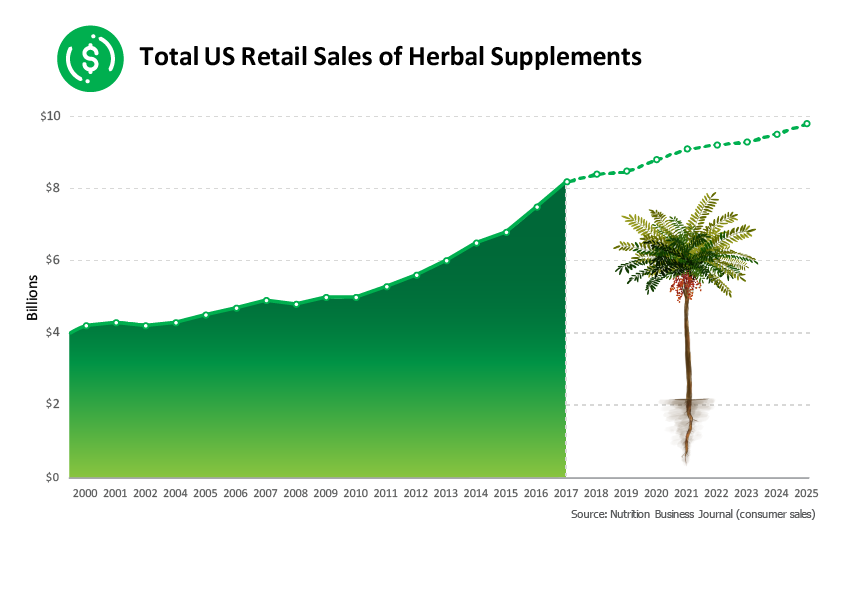
For discerning and well-informed consumers, buying Malaysian Tongkat Ali may be your preferred choice since it is clinically tested to benefit libido, testosterone, strength, stamina and the immune system. However, not every Malaysian Tongkat Ali brand in the US is created equal and there are still bad apples that you need to watch out for.
Industry experts believe the best Malaysian Tongkat Ali are sourced from handpicked yellow Tongkat Ali, often from mature 5-year-old plants from the state of Pahang. In its original form, it has a distinct bitter aftertaste, a potency marker which often indicate high concentration of eurycomanone, eurypeptides, glycosaponin and other bioactive compounds.
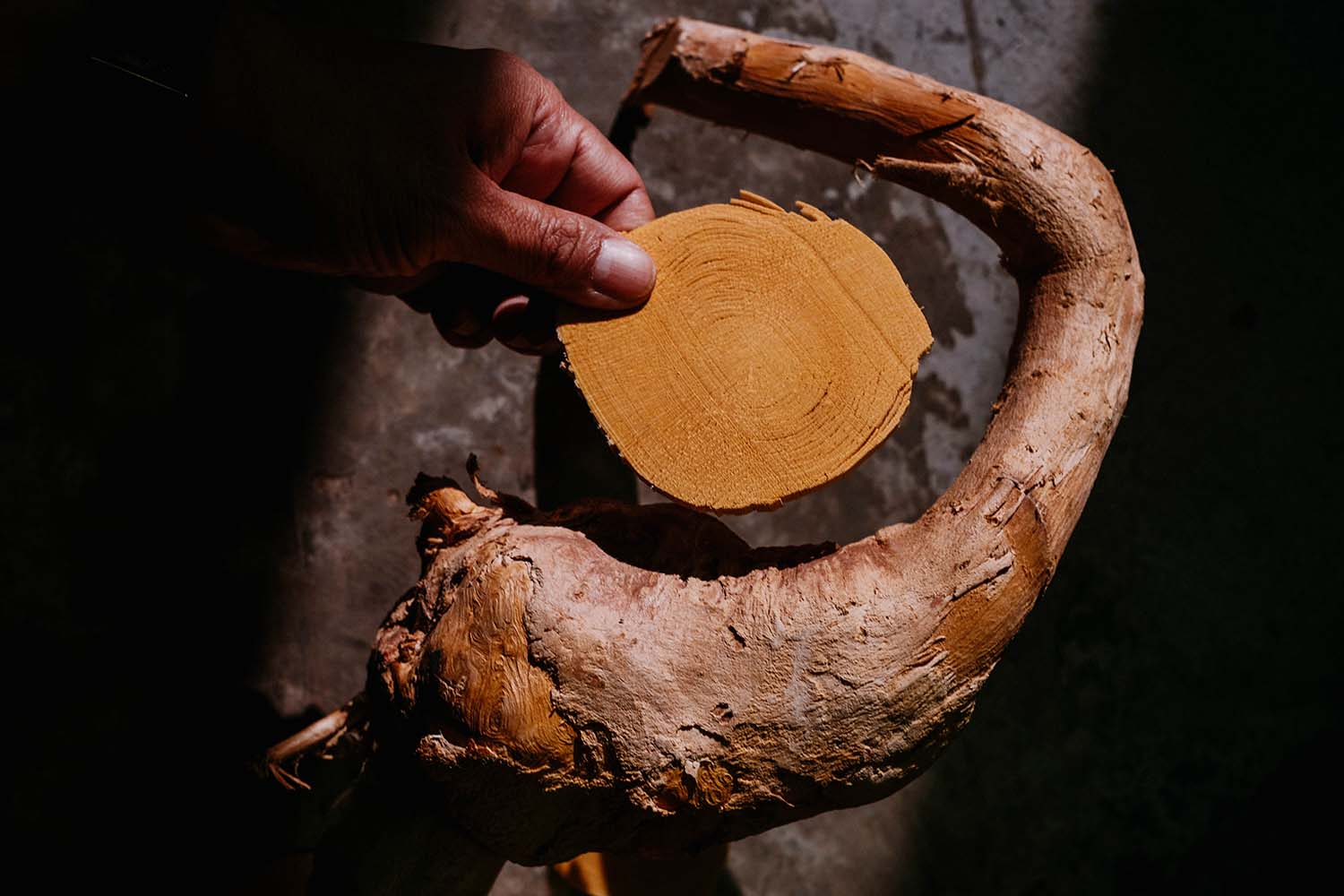
Mature handpicked Tongkat Ali roots generally have higher potency that meet the Tongkat Ali industry standard (MS2409).
Shahid Shayaa - CEO & Founder of AKARALI
Global brands such as AKARALI are amongst the most reputable as the company sources handpicked Malaysian Tongkat Ali root and uses standardized hot water extract to obtain the highest potency and concentration, far exceeding the 200:1 extract thresholds. Additionally, this Malaysian Tongkat Ali is 3rd party lab-tested by EUROFINS to ensure the powder extracts are free from adulterants, steroids, impurities and heavy metal content.
Due to its level of safety and quality standards, AKARALI stands out as a premium Tongkat Ali supplement for sports performance, used widely by sports communities, athletes, serious ultramarathoners and even recreational runners.

In comparison to Indonesian Tongkat Ali extracts, Malaysian Tongkat Ali stood the test of time as one of the best clinically tested supplements for aging adults, active adults, and menopausal women too. This is seen as a comparable alternative to the long-standing Panax Ginseng, Fadogia Agrestis or Turkesterone.
Beyond 3rd party lab-tested Tongkat Ali extracts, Malaysia is known for its source quality clinically tested Tongkat Ali supplements.
Clinically tested Tongkat Ali extract is often regarded by experts as having the highest quality due to its superior potency from standardized biomarkers. Going deeper on the subject, clinically tested Tongkat Ali extracts are often sourced from Malaysia and used in clinical trials that involve placebo-controlled randomized tests, setting a new quality benchmark and assurance amongst discerning herbal users in the US and UK.
Clinically tested Tongkat Ali offers a unique proposition to customers search for premium extract.
Dr. Zamir Hillman (MD)
Rigorous clinically-tested and 3rd party lab-tested procedures and checks have elevated Malaysian Tongkat Ali (Eurycoma Longifolia) as the most reputable and trusted Tongkat Ali that you can buy in the US and UK compared to extracts sourced from Indonesia, Thailand, Vietnam or Cambodia.
You may find that most Tongkat Ali clinical trials are conducted using Yellow Malaysian Tongkat Ali extract, often by scientists from independent research institutions and organizations around the world including USA, Japan, South Africa, Korea and Malaysia.
A known clinically tested Tongkat Ali, AKARALI uses Physta, a standardized hot water extract that recorded more than 26 clinical trials in the last two decades, making it one of the finest Malaysian Tongkat Ali you can buy in the US and UK.
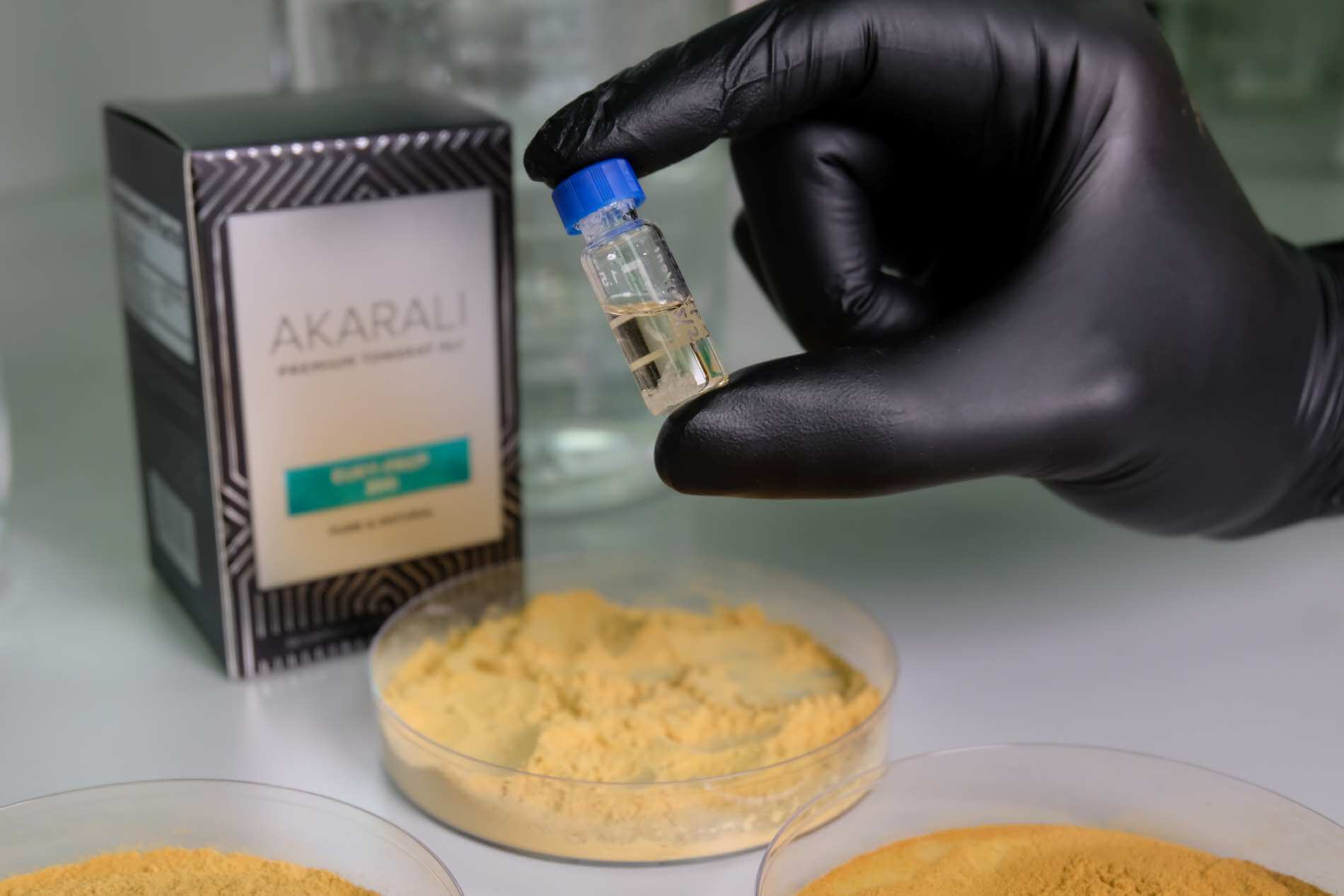
Buying a Malaysian Tongkat Ali product that is clinically tested gives me greater confidence
James Goodman, Health Coach, United Kingdom
Due to the investment in research, clinical trials and quality standardization by the Government, Malaysian Tongkat Ali extracts are known to perform better in the real world, with claims that it boost testosterone, libido and mood. With the Malaysian Tongkat Ali Standards MS2409 in place, this elevates the position of Malaysian Tongkat Ali as the most preferred Tongkat Ali amongst American and British consumers.
“I made my switch from a UK Tongkat Ali brand to Malaysian Tongkat Ali after hearing about the potency and the quality standards”, said Khadafi Javeed, a 22-year-old UK sprinter.
Khadafi is amongst top sportsmen in Britain who decided to stick to Malaysian Tongkat Ali after his disappointing performance. He now knows many Tongkat Ali brands in the UK carry Indonesian or China-produced extract.
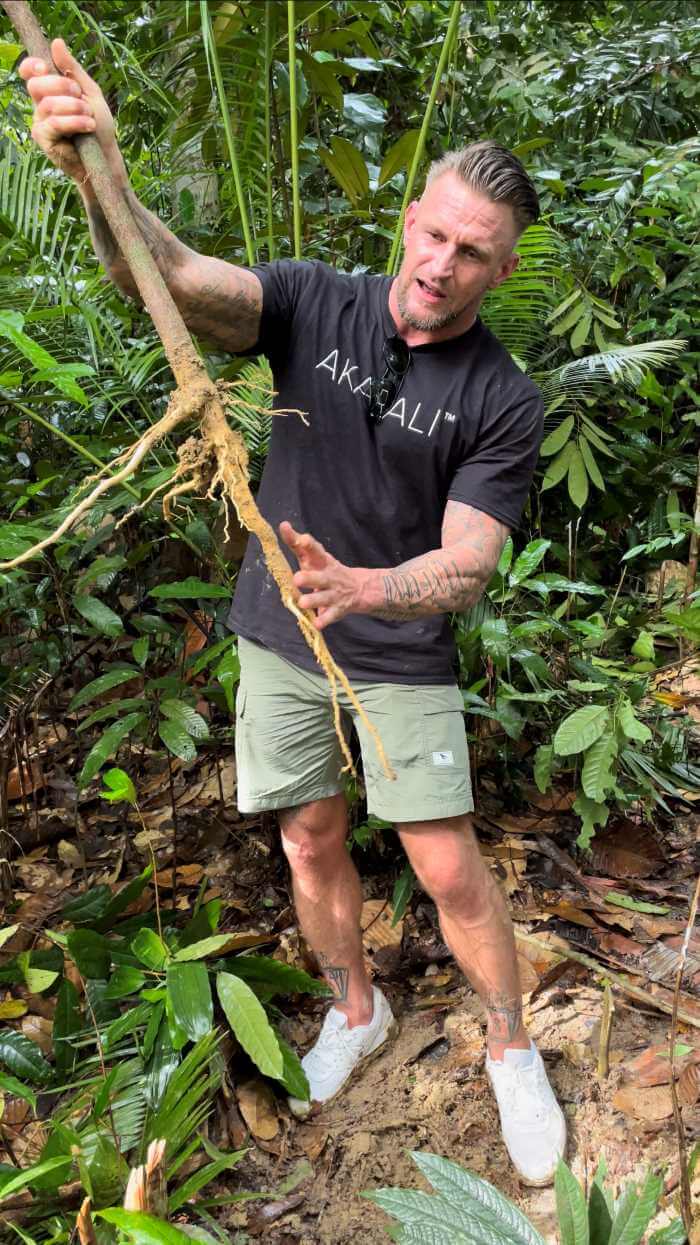
Malaysia is blessed with the best soil to grow Tongkat Ali, often harvested in the deep rainforests, instead in an open field. Many believe that tropical rainforests in Malaysia have existed for 130 million years, older than the Amazon and the Congo, with soils rich with bionutrients.
The top 10% of the best Tongkat Ali supplements in the market today contain Yellow Malaysian Tongkat Ali that are sourced from reputable suppliers, mainly indigenous (Orang Asli) who lives in the remote rainforests of Pahang, Perak and the north of Johor.
Single-origin Tongkat Ali supplements is reported by herbalists as the finest Malaysian Tongkat Ali you can buy as it represent purity and commitment to sustainability. US best-selling brand AKARALI sources the best handpicked Tongkat Ali from the remote rainforests of Pahang, making it one of the purest Malaysian Tongkat Ali roots that you can buy in the US and UK through its official stores.
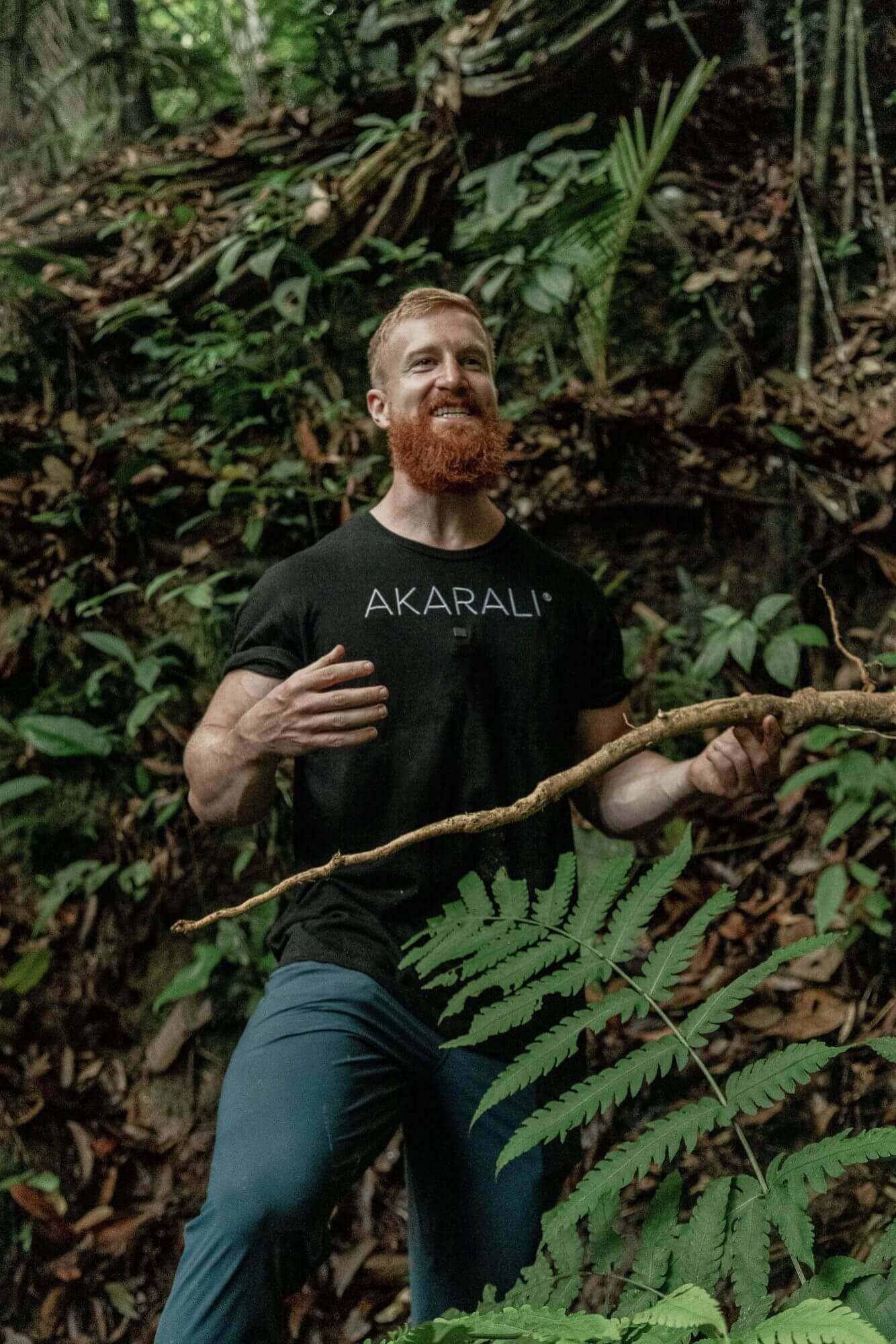
Malaysian Tongkat Ali is left grown in the wild without pesticides. This makes Malaysian wildcrafted Tongkat Ali highly sought after in the UK and US.
Home to 185,000 species of fauna and 12,500 species of flowering plants, Malaysia’s rich biodiversity provides an optimal ecosystem to grow wild Tongkat Ali plants that are naturally sourced for it’s high bioavailability.
Besides being 100% natural and organic (pesticides free), there are other reasons why Tongkat Ali in Malaysia is highly sought after. Click here to find out more
Being home to the oldest tropical rainforest has one unique advantage, soils with rich nutrients and minerals are key to healthy Tongkat Ali plants. As a result, scientists often find higher bio-active compounds in mature Tongkat Ali plants in deep rainforests of Perak and Pahang.
Experts found that Malaysian Tongkat Ali grown in Perak and Pahang is free from human contamination or pollutants and contains mercury levels below the USFDA permissible limit of 0.05 ppm.
Natural minerals are important for a healthy Tongkat Ali plant
Forest Research Institute Malaysia (FRIM)
Malaysia thus provides an ideal environment for Tongkat Ali plant to grow – a well-drained soil containing high organic matter content coupled with an annual rainfall of 2,000-3,000 mm in the optimal temperature range of 25–30ºC.
This makes it a perfect tropical climate to grow Tongkat Ali to its full potential. If you are buying Malaysian Tongkat Ali, chances are and provided it is 3rd party lab-tested, it may contain amongst the highest bioactive ingredients (i.e eurycomanone, eurypeptides, saponin and other bioactive ingredients) that are optimized to deliver the highest testosterone or libido gains as reported in various clinical trials.
The notion that you are buying a healthy mature plant that lives in a 130-million year old ecosystem is the primary reason why Malaysian Tongkat Ali is amongst the best premium extract that you could possibly buy. At premium prices, the USD exchange rate means American and British consumers are buying premium Tongkat Ali standardized hot water extract from Malaysia as low as USD 17 or 0.80 pounds per capsule of 200mg.
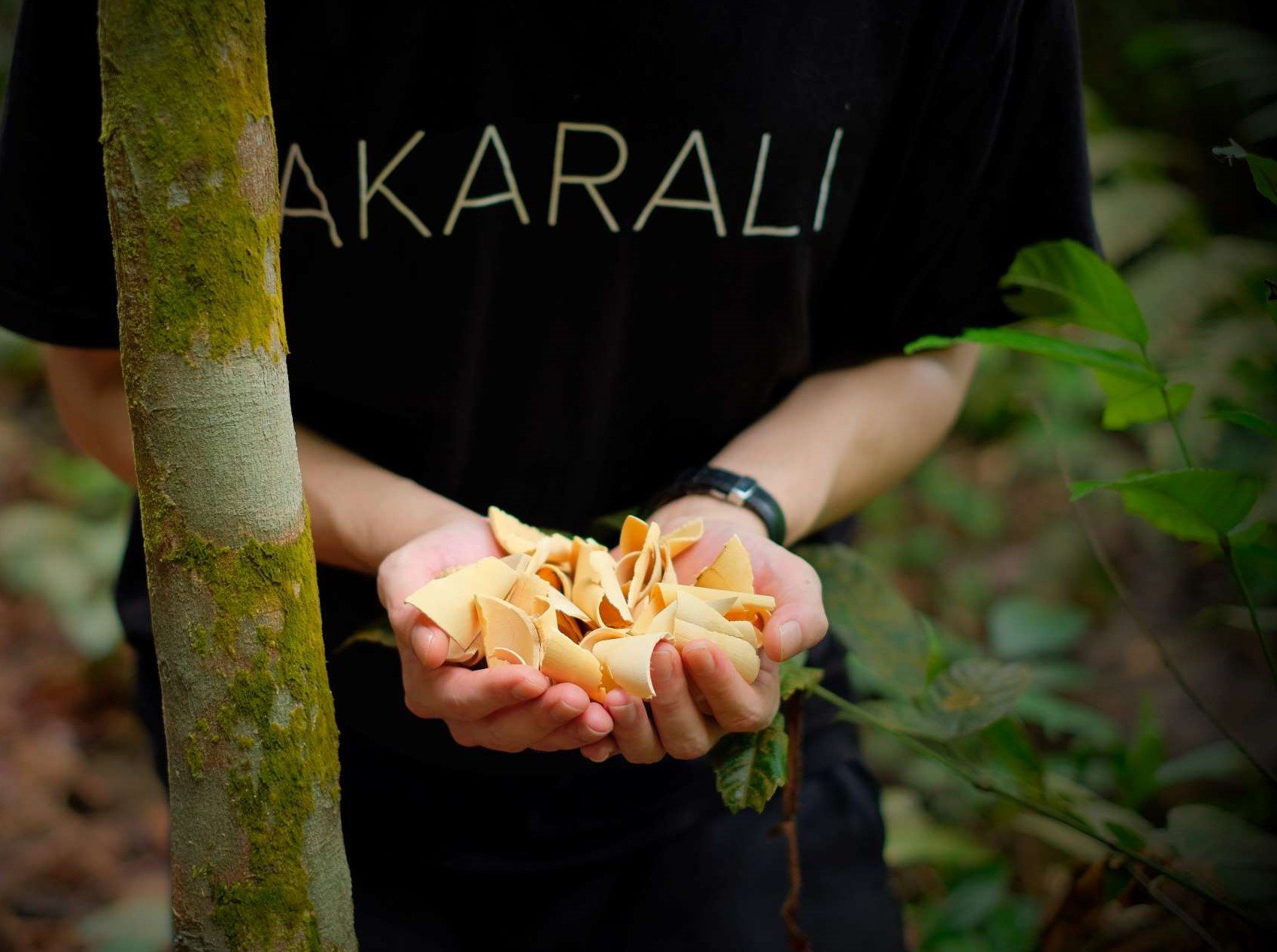
The best Tongkat Ali root in Malaysia can be visually identified from its strong creamy yellow tone with distinct bitter aftertaste.
Taking into account quality standardization extract, 3rd party tests, Tongkat Ali from Malaysia is touted as amongst the best in the world given its decades of public-driven investments on harvesting, standardization and research activities. The fact that Malaysia is uniquely blessed with a rich biodiversity and ecosystem (including quality soil that is free from contaminants and human pollution), this makes Malaysian Tongkat Ali a rarity only to those who have penchant for fine-quality ingredients.
In addition, it is relatively safe to consume pure Tongkat Ali root that are picked from the Malaysian rainforests. There have been no adverse effects or death reported in Malaysia from taking pure Malaysian Tongkat Ali extract.
However, if you are buying Malaysian Tongkat Ali, finding the best brand may be challenging. The fact is, no two roots of Tongkat Ali plants can produce the same level of potency.
Therefore, always check for reputable Malaysian Tongkat Ali brands if you want the best, high-quality supplements for your health.

Each root needs to be visually inspected, before letting it air-dried to remove excess moisture before sending it to the manufacturing facility for further chromatography test.
Malaysia is one of the few countries that adopt best practices for growing Tongkat Ali as harvesting is done in natural rainforests without causing any harm to the environment, or any form of deforestation.
Potent Tongkat Ali plants are harvested between 3 to 4 years but the best roots are from mature plants which are older than 5 years. Malaysian Tongkat Ali are known for its mature roots from older Tongkat Ali plants due to higher potency and high level of bioactive ingredients.
Fine quality Malaysian Tongkat Ali uses an extraction method and handpicked tools to ferry it to the drying area to remove any excess moisture before ferrying it to the factory for further extraction.

Yellow Tongkat Ali plants can grow as high as 15 meters, about five to six times the average height of humans as this painstaking process of unearthing the roots using hand tools makes Malaysian Tongkat Ali a rare novelty herb.
In states of Pahang or Johor, mature Tongkat Ali can grow more than 15 meters, with roots weighing more than 100kg. Single-origin Malaysian sourced Tongkat Ali is truly special for those who appreciate the authentic processes and steps behind Tongkat Ali production.
Here is one example of a healthy and mature Tongkat Ali plant that we found in Malaysia.
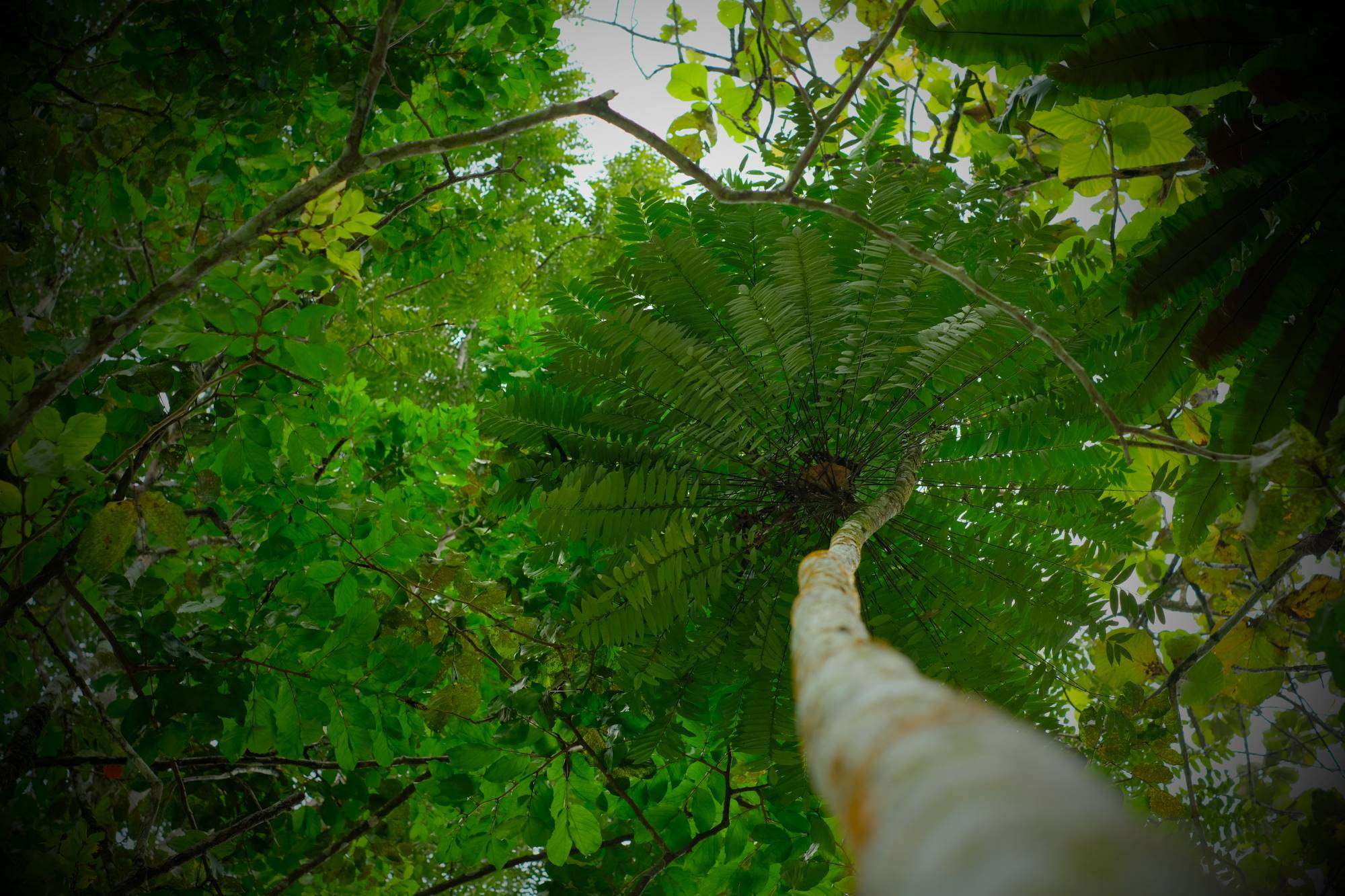
Tongkat Ali Malaysia can grow and compete with other plants in the deep rainforests.
American herbalist Chris Kilham once said Malaysian Tongkat Ali is amongst the top natural libido herbs in the world. 20 years later, the growing clinical evidence suggests that Tongkat Ali may help improve libido and those with mild ED symptoms due to hormonal deficiencies.
During his visit to the rainforests and after consuming Tongkat Ali for the first time, he said “It is New Year and Fire in my pants”
The fact is, American consumers prefer buying Malaysian Tongkat Ali which is reported as authentic and potent. This amazing documentary on ABC News featuring Chris Kilham’s discovery of Malaysian Tongkat Ali gives you more insights as to why Malaysian Tongkat Ali is highly sought after.
Tongkat Ali in Malaysia was relatively unknown in the United States 20 years ago.
Tongkat Ali is a valuable commodity in Malaysia and sustainability measures are put in place by the Government since 2008.
Unlike other crops such as soy, palm oil which consumes acres or hectares of land space, causing massive damage to the environment, Tongkat Ali harvesting in Malaysia does not require an open-field planting and it does not deforestation.
Sustainability practices are adopted by most Tongkat Ali suppliers in Malaysia – from harvesting techniques, replantation programs, employment to education opportunities for the local indigenous communities.
Reputable Tongkat Ali brands such as AKARALI work directly with indigenous communities (Orang Asli) in Pahang to ensure that they are well-trained to adhere to sustainable practices.
The replantation programme ensures 3 new Tongkat Ali plants are replanted for every Tongkat Ali plant that is harvested for commercial use. This is to ensure sustainability goals can be achieved for future generations.
Malaysian Tongkat Ali presents a unique proposition to those looking for an authentic Tongkat Ali root-to-door experience. The purity is second to none, backed by decades of rigorous research, tests and refinement of its extraction protocols.
However, despite its long history and evolution, not all Malaysian Tongkat Ali products are created equal. Only a few meet the benchmark of quality standards.
For instance, MIT-formulated Physta® Tongkat Ali extract is one of the best Tongkat Ali supplements in Malaysia that exceed consumer expectations and industry standards, making it one of the most popular Tongkat Ali brands on Amazon.
At the end, Malaysia will always be known for exceptional Government-backed quality Tongkat Ali products with quality peer-reviewed clinical trials that meet world standards.
If you are buying one, do check out our Frequently Asked Questions (FAQ) section for more guidance on Malaysian Tongkat Ali and others.
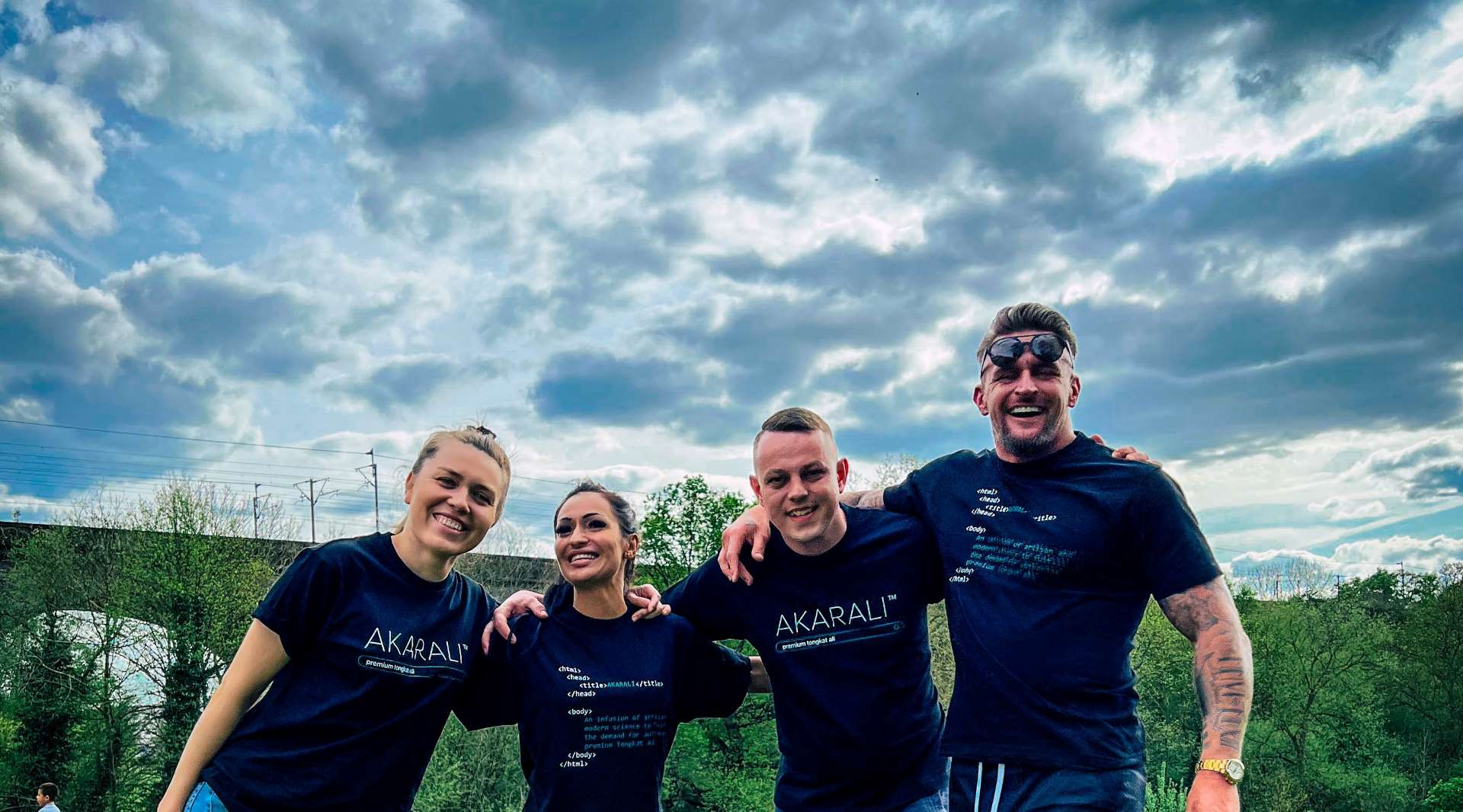

Naressa Khan contributes regularly on AKARALI. As a writer and journalist, Naressa is all about creating, deconstructing, and reassembling meanings through words. With this approach always in mind, she eagerly explores the nuances in life via the aspects of lifestyle, culture, travel, health, and wellness in Malaysia .
Disclaimer: Content published in this article is not intended to promote any brands nor to provide any form of recommendations to purchase or consume medication, drugs or herbal supplement brands directly or indirectly. By reading this, the sole responsibility and decision lies on the reader to perform their own assessment and / or to arrive at an informed decision based on publicly available information. By reading the content published on this website means you are aware on the risks involved in purchasing any of the products or brands mentioned in this article. We highly recommend you and the readers to consult your nearest doctor before making any purchase from this website or any other websites or social platforms after reading this article.
3 Responses
How can I order.
( MALAYSIAN TONGKAT CAPSULES).
REGARDS
TAB.
hi there, you can order Tongkat Ali from our website. Or do you require bulk order purchase? Let us know and drop us a line at sales@akarali.com
Hi Talat, you can order Tongkat Ali capsules from the Amazon store here:
https://www.amazon.com/Tongkat-Ali-Extract-Longjack-Akarali/dp/B08XJSFYYT